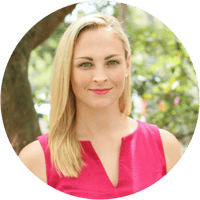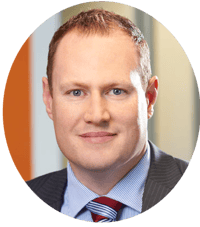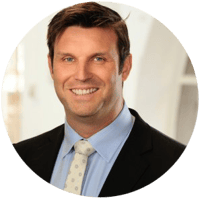Estate Planning Intensive Web Series
Deep-dive into the issues that drive estate planning
Expand your estate planning knowledge
Tax, super & legal explored
6 part live instructor led training
There are key areas in an estate plan that should never be overlooked. Understanding these issues allows you to provide a more complete estate planning service for your clients.
This specialist webinar series delivers the knowledge accountants and advisers delivering estate planning services need to know.
Less than 5% of accountants and advisers deliver comprehensive estate planning services to their clients. This is the professional services growth opportunity.
Estate planning is a service your clients need. If you don’t deliver these services to your clients, who will?
Register Me
AU $590 members
AU $660 non-members
Register Office
AU $1.250 members
AU $1,495 non-members
Knowledge Shop members, login for the discounted rate.
Terms & conditions: All registrations to Knowledge Shop events are subject to our terms and conditions which include a cancellation policy. No refunds are provided for cancellations received 1 day prior to the webinar. No credits are available less than 2 hours prior to the event under any circumstances.
*Office Registrations. Maximum 10 participants per firm (must have same email domain). The PD points for all attendees will be recognised and links will be provided to all attendees.
Details
Recorded 4, 11, 18, 25 February and 4 & 11 March 2022
FPA accredited for a total of 8 CPD hours (26028, 26057, 26100, 26319, 26320, 26321)
- 7.00 Technical competence
- 1.00 Regulatory compliance
The details
What's included?
- 6 x 1.25 hour (est.) webinar
- 3 month access to Q&A embedded webinar recording for each registrant - so don't worry if you can't make all of the live dates
- Reference notes
Session 1
SMSF Structuring for estate planning
w Chloe Ward, Diverger
Whether you set up your client’s SMSF or are managing an existing fund, there are a number of structuring issues that need to be regularly reviewed.
We explore:
- What needs to be in place so the right person has control of an SMSF on the death of a member
- The essential paperwork trail for effective death benefit outcomes
- The ATO’s updated rules on the payment of superannuation death benefits
- How indivisible assets can create issues when a death benefit needs to be paid
- Pension planning & structuring to achieve desired outcomes
- The requirements for a deceased members legal personal representative to be appointed as trustee
- The pitfalls and risks where a SMSF member dies intestate
- Managing issues for ageing members – incapacity issues
- Managing assets in the fund
Session 3
Do testamentary trusts work?
w Adrian Bailey, Cleary Hoare
If you have ever discussed estate planning and testamentary trusts with clients you will know that a question commonly asked is whether testamentary trusts work. Most clients are concerns about family law breakdown in the next generation but there are other areas to consider in terms of protection of the assets generally. This webinar will examine recent case law in this and discuss the following issues:
- Testamentary trusts and bankruptcy
- Testamentary trusts and family law claims in the next generation
- Best practice methods of structuring a testamentary trust for asset protection
- Overview of recent tax changes that impact from a state and commonwealth tax perspective. An in depth analysis will be provided in another session
Session 5
Strategies to protect against estate challenge
w Adrian Bailey, Cleary Hoare
Whether it’s the risk of a disgruntled child, blended family, or new partner, the reality is that estate challenges are on the rise throughout Australia. Adrian examines what the risks are and delivers the strategies to manage those risks to ensure your clients’ wishes are followed.
- What really is at risk in an estate challenge?
- Who can claim?
- What is the impact of the NSW specific laws that turn estate planning on its head?
- Challenge against superannuation
- Strategies to deal with a potential challenge
Session 2
The legal process and problem areas when a client dies
w Paul Mackenroth, Cleary Hoare
- From a legal perspective, what happens when a client dies
- What does probate mean?
- What happens if the client is a director / trustee / appointor?
- What happens to loans / liabilities of a client when they die?
- What information will a lawyer normally need from clients or their accountants as part of the estate planning process (e.g., before a will can be drafted etc.,)?
- Are there issues that clients / accountants often haven’t thought about that really should be considered?
- Case studies
Session 4
Using trusts for estate planning: family trusts vs testamentary trusts
w Michael Carruthers, Knowledge Shop
Clients use trusts for a range of purposes including asset protection, succession planning, flexibility and tax efficiency. In some ways, testamentary trusts are taxed in a similar way to normal family trusts but there are differences that are crucial to understand during the planning process and after a trust has been established.
Testamentary trusts offer some advantages from a tax planning perspective that are not normally available to standard discretionary trusts and it is important for practitioners to understand how these rules work.
- The significant tax advantages of testamentary trusts when distributing to minor beneficiaries
- The significant changes to the rules dealing with distributions to minors
- Setting up a trust after death from the proceeds of the estate and the limitations that need to be taken into account
- When distributions to minors from normal discretionary trusts can still be tax effective
- Accumulating income in a testamentary trust and how to ensure concessional tax treatment is available
- When the CGT discount can and cannot apply
- CGT issues to consider when trusts are being utilised as part of the estate planning process
- Tax administration issues for testamentary trusts compared with family trusts
Session 6
Deceased Estates: getting the right tax outcomes
w Michael Carruthers, Knowledge Shop
When a client dies this sets in motion a whole series of events and tax issues that someone will need to deal with – often the accountant is heavily involved in this process.
We step you through the practical issues faced by practitioners assisting clients with the administration of a deceased estate or preparing the tax return for a deceased individual, their estate, or their beneficiaries. Before this time, understanding the asset history can make a major difference to tax outcomes.
Michael explores the unique tax issues that arise in the context of deceased estates and what can be done in planning for the estate.
- How to deal with income derived from assets of the estate and what to do with income in the year in which the administration of the estate is completed
- The tax treatment of superannuation death benefits and other common payments received after a client has died
- Tax optimisation of asset realisation
- Building the history of estate assets
- Taking advantage of concessions contained within the main residence exemption rules
- Determining the optimal tax outcome for gifts
- When the small business CGT concessions can be applied by an executor or the beneficiaries of a deceased estate following the death of the original business owner
- Dealing with Division 7A loans following the death of a client



